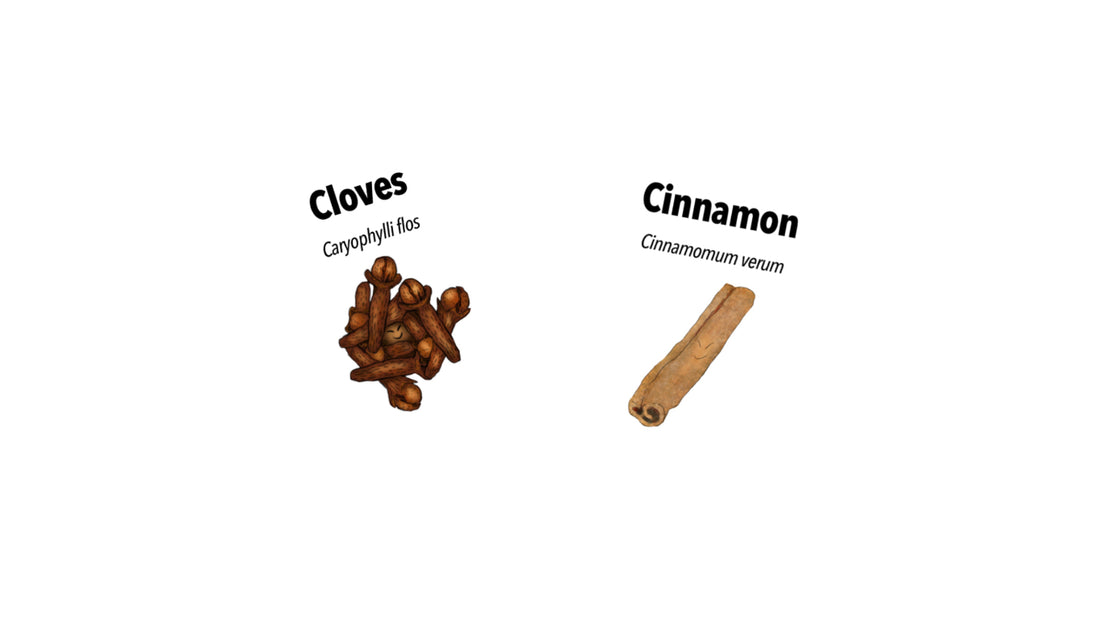
A Culinary Finale: Part 5 of the Thanksgiving Spice Series
Share
Hi friends!🍂✨ Welcome back to the grand finale of our aromatic journey, '10 Herbs and Spices to Use for Thanksgiving'! As we culminate this flavorful adventure, let's unravel the enchantment of the final two spice virtuosos: Cinnamon (Gui Pi) and Cloves (Ding Xiang). These culinary gems promise to infuse your Thanksgiving celebration with warmth, flavor, and Traditional Chinese Medicine (TCM) wisdom. Join us as we bid adieu to this flavorful symphony! 🌿✨

Cinnamon (Gui Pi) in TCM:
In the realm of TCM, Cinnamon is known as Gui Pi. Picture a spice that exudes warmth, boasting an enticing blend of acrid and sweet tastes. Cinnamon gracefully enters the heart, kidneys, liver, and spleen channels, offering a symphony of functions:
-
Tonify Liver and Heart: Gui Pi becomes a harmonious tonic, nourishing the liver and heart for a well-balanced energy flow.
-
Tonify Kidney Yin: As you savor the flavors, Gui Pi supports the nourishment of Kidney Yin.
-
Regulate Yang: Gui Pi plays a vital role in regulating Yang energy, promoting balance and vitality.
-
Tonify Xue (Blood), Move Xue (Blood): Enriching the celebration, Gui Pi supports blood health and ensures a smooth flow throughout the body.
-
Warm Heart, Regulate Uterus: Gui Pi's comforting warmth extends to the heart and contributes to the regulation of the uterus.
-
Calm Shen (Mind): Embracing the festive spirit, Gui Pi calms the Shen, fostering a sense of tranquility.
However, a note of caution: Large doses can stimulate uterine contractions in pregnant women, so it's advisable to avoid it during pregnancy.

Cloves (Ding Xiang) in TCM:
In TCM, Cloves are known as Ding Xiang. Imagine a spice with a warm nature and an acrid taste, elegantly entering the kidney, spleen, and stomach channels. Cloves unveil a repertoire of functions:
-
Warm Middle Jiao (Burner): Cloves take center stage in warming the Middle Jiao, promoting digestive harmony during your Thanksgiving feast.
-
Descend Qi (Energy) Rebellious: Embracing the culinary symphony, Cloves help to descend rebellious Qi, ensuring a smooth flow of energy.
-
Warm Kidneys, Tonify Kidney Yang: Contributing to the warmth of the celebration, Cloves support the kidneys and tonify Kidney Yang.
A note of caution: Avoid using Cloves in cases of febrile disease, internal heat, or symptoms of Yin deficiency. Common Yin deficiency symptoms include irritated fever, night sweats with red cheeks, palpitations and insomnia, a red tongue with little coating, and a thready and rapid pulse.

As you savor the festive symphony of Cinnamon and Cloves, let the aromatic notes elevate your Thanksgiving celebration. We extend our heartfelt gratitude for joining us on this aromatic journey. May these insights into TCM spices enhance your culinary experience and bring warmth to your celebrations. Thank you for being a part of Boncho Friends, and we hope this information enriches your health and happiness!
Warmly,
Isaac and Bora 🌟
